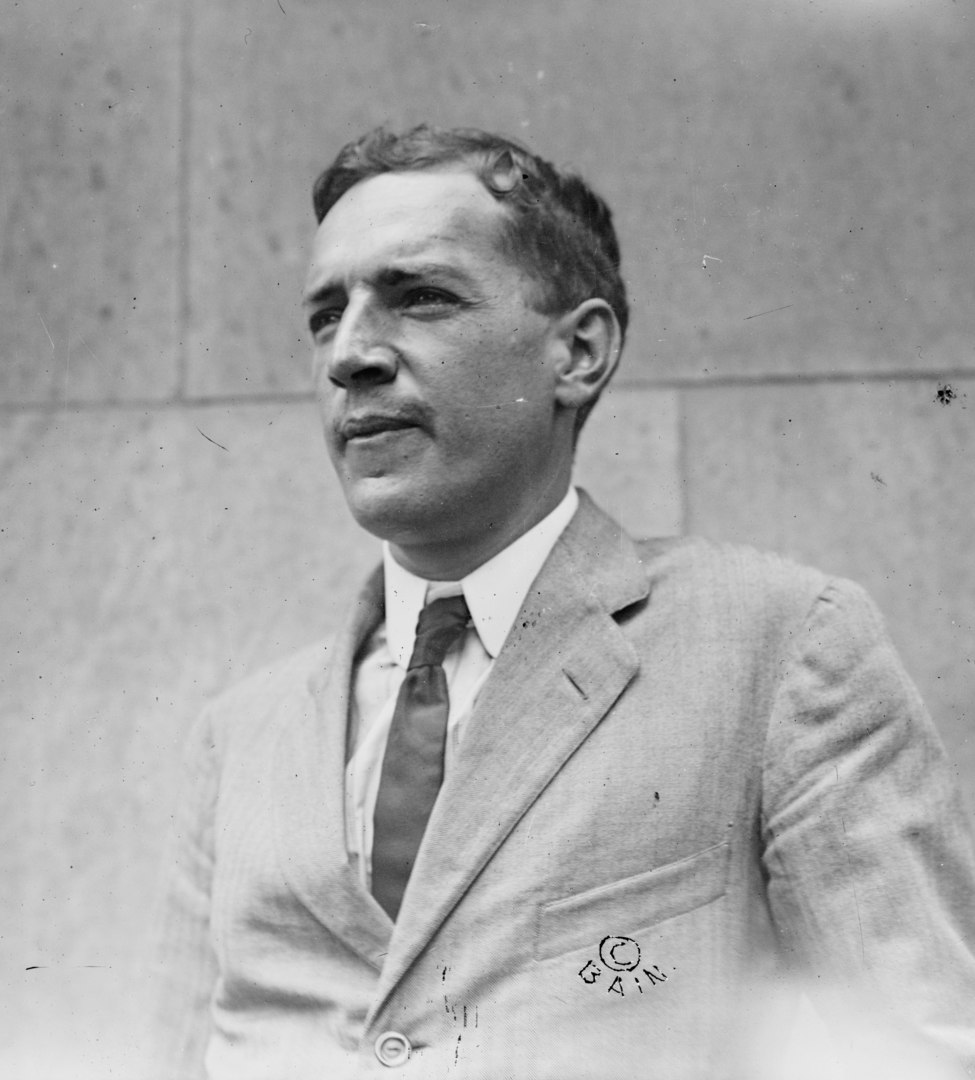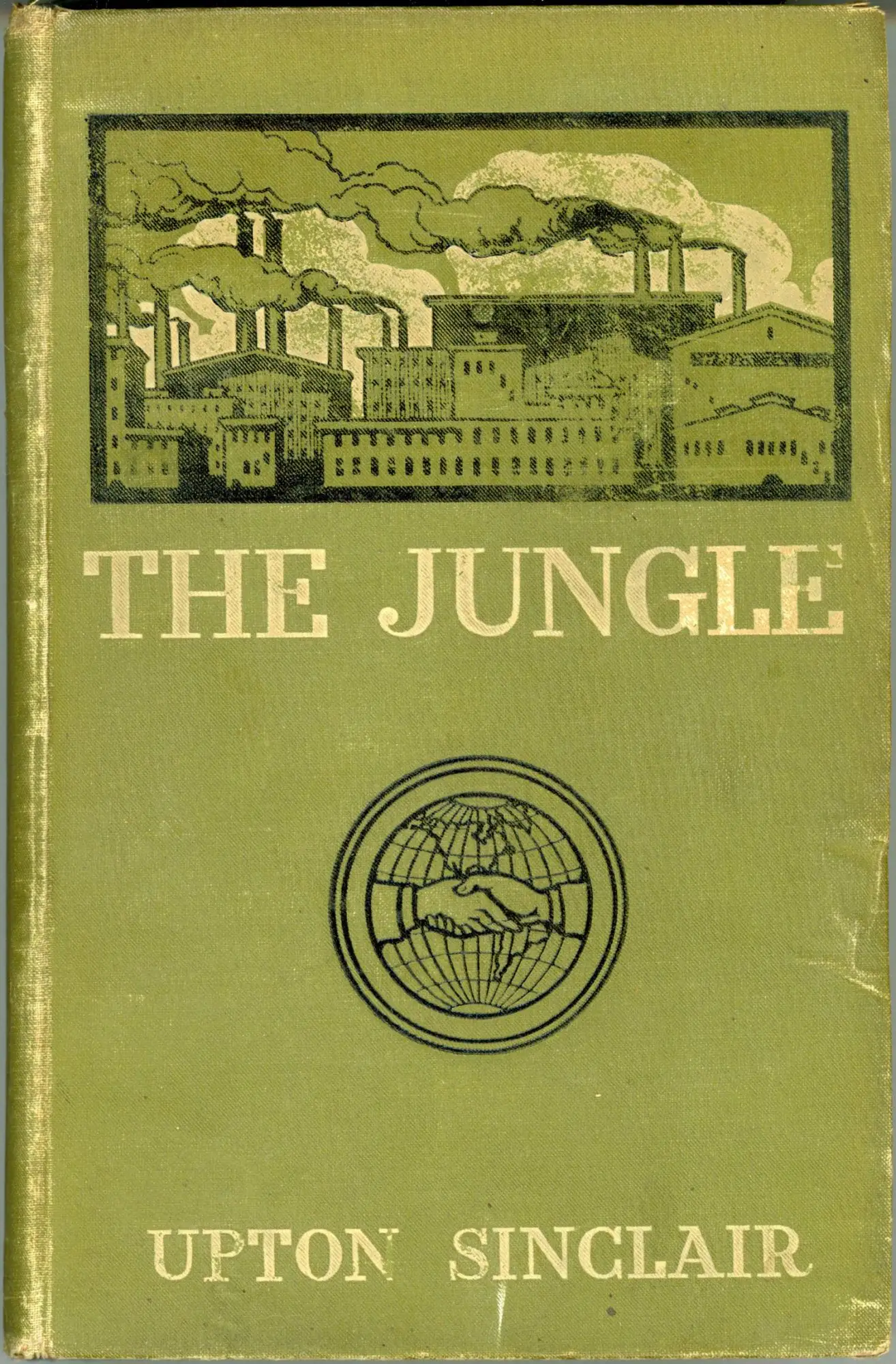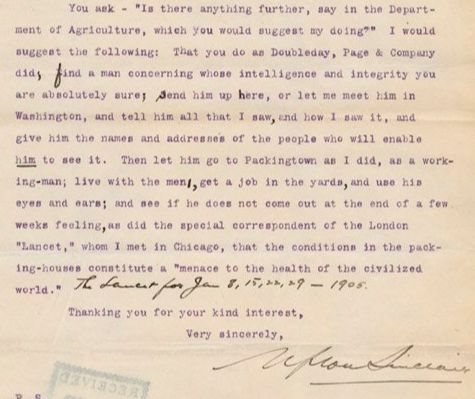The Muckraker
"The great corporation which employed you lied to you, and lied to the whole country—from top to bottom it was nothing but one gigantic lie."
~ Upton Sinclair, The Jungle

Upton Sinclair, Bain News Service, Library of Congress.
Upton Sinclair was an American writer, muckraker, and socialist activist. He was best known for his novel, The Jungle, which was based on the troubling conditions of a Chicago meatpacking company.
In 1904, a meatpacker's union in Chicago went on strike. The editor of the socialist magazine that Sinclair wrote for, Appeal to Reason, suggested to Sinclair that he should write about the incident. Sinclair went to Chicago with the hopes of telling a story of the conditions suffered by the meatpacking workers. Little did Sinclair know that he would witness firsthand all of the meat industry's extremely unsanitary practices. His book instantly caught the public's eye.
"I aimed at the public's heart and by accident I hit it in the stomach."
~ Upton Sinclair
The Novel that Alerted the Public
Sinclair wrote a horrific story about what was going on behind the scenes in the meatpacking plants. In one part, he tells of a worker whose job was to slaughter boil-covered cattle, and upon slicing the cattle, they would burst and spray foul-smelling insides all over the worker (Sinclair, The Jungle). Sinclair also wrote of how most workers, because of the disgusting conditions, would get infected with diseases.

Sinclair, Upton, The Jungle.
"This is no fairy story and no joke; the meat would be shoveled into carts, and the man who did the shoveling would not trouble to lift out a rat even when he saw one—there were things that went into the sausage in comparison with which a poisoned rat was a tidbit."
~ Upton Sinclair, The Jungle
Sinclair and Roosevelt

Letter from Upton Sinclair to President Roosevelt. March 10, 1906.
Sinclair sent an advanced version of The Jungle to President Roosevelt as well as this letter, pleading for government officials to confirm what he had seen. This led to the Neill-Reynolds Report.
"That the conditions in the packing-houses constitute a 'menace to the health of the civilized world.'"
~ Upton Sinclair in the letter